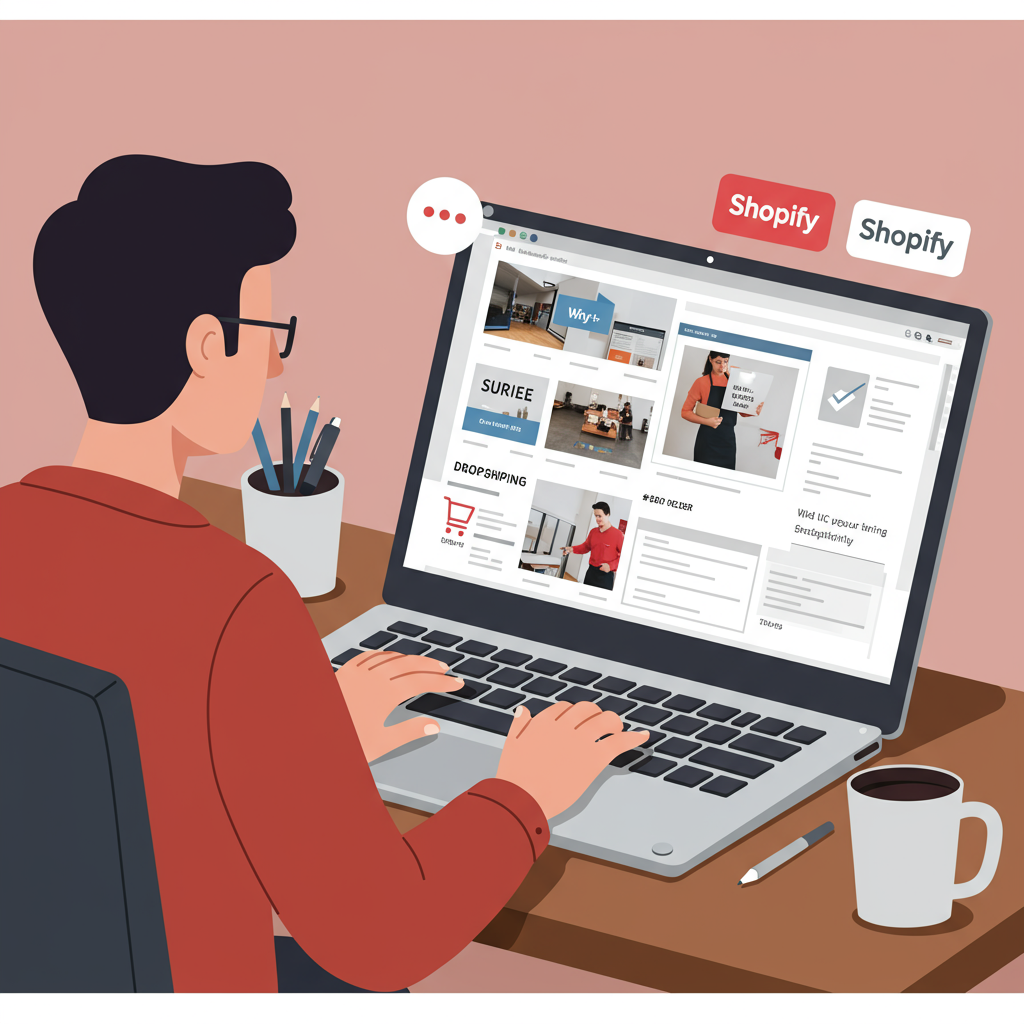Unlocking Reliable Sourcing for Your Shopify Store
As an entrepreneur navigating the exciting world of e-commerce, I’ve seen firsthand the incredible potential of dropshipping. It’s a business model that allows you to sell products without holding any inventory, significantly reducing upfront costs and logistical headaches.
For many, myself included, the allure of dropshipping lies in its flexibility and scalability. You can launch a store quickly, test various product niches, and operate from anywhere in the world.
However, there’s a critical component that often determines the success or failure of a dropshipping venture: finding reliable suppliers. This, I’ve learned, is where many aspiring merchants hit their first major roadblock.
Without trustworthy partners, you risk delayed shipments, poor product quality, and a customer service nightmare. These issues can quickly erode your brand reputation and lead to a frustrating experience for everyone involved.
This is precisely why I want to talk about dropshipping supplier directories. Think of them as curated databases specifically designed to connect you with legitimate wholesalers and manufacturers.
They act as a bridge, simplifying the often-daunting task of sourcing products. Instead of sifting through countless search results or attending expensive trade shows, you can access a vetted list of potential partners.
From my perspective, the primary benefit of using a directory is the time it saves. Vetting suppliers individually can be an incredibly time-consuming process, involving extensive research and communication.
Directories often pre-screen suppliers, checking for legitimacy, business licenses, and sometimes even product quality. This pre-vetting provides a layer of confidence that you might not get from a random online search.
When I first started exploring these directories, I realized they weren’t all created equal. Some are general, listing suppliers across a vast array of product categories.
Others are highly specialized, focusing on niche markets like eco-friendly products, pet supplies, or specific fashion items. Understanding your own niche will help you choose the right directory.
What should you look for in a good dropshipping supplier directory? For me, a comprehensive product range is key. I want to see a wide variety of items within my chosen niche, giving me options to diversify my store.
Equally important is the quality of the supplier vetting process. Does the directory clearly explain how they screen their partners? Are there reviews or ratings from other merchants?
I also pay close attention to the directory’s support resources. Do they offer educational materials, guides, or customer service to help you navigate the sourcing process?
Some directories even offer integration features with platforms like Shopify, streamlining product imports and order fulfillment. This can be a huge time-saver in the long run.
Let’s touch upon some popular types of directories and platforms I’ve encountered. There are large, comprehensive directories like SaleHoo or Worldwide Brands, which boast extensive lists of suppliers.
SaleHoo, for instance, is known for its vast database and educational resources, making it a good starting point for beginners. They often provide insights into market trends and supplier reliability.
Worldwide Brands, on the other hand, prides itself on listing only certified wholesalers, often catering to businesses looking for larger volume purchases, though many also support dropshipping.
Then there are integrated platforms like Doba, which not only list suppliers but also allow you to source products, manage orders, and even integrate directly with your Shopify store. This can simplify the entire workflow.
More recently, I’ve seen the rise of platforms like Spocket or Modalyst, which focus on faster shipping times, often from suppliers based in the US or Europe, appealing to merchants targeting those markets.
And, of course, for those interested in print-on-demand, specialized platforms like Printful or Printify act as their own kind of directory, connecting you with manufacturers who print and ship custom designs.
Once you’ve chosen a directory, how do you effectively use it? My advice is to start by utilizing their search and filtering tools. Narrow down your options by product category, location, minimum order quantity, and shipping capabilities.
Don’t just pick the first supplier you see. Take the time to compare multiple options. Look at their product catalogs, pricing structures, and, most importantly, their communication responsiveness.
This leads me to a crucial point: due diligence. Even with a vetted directory, it’s your responsibility to thoroughly vet individual suppliers. I always recommend ordering samples of products you intend to sell.
This allows you to assess the product quality firsthand, check packaging, and evaluate shipping times. It’s an investment that can save you from significant headaches down the line.
Communicate clearly with potential suppliers. Ask about their return policies, shipping methods, processing times, and how they handle customer service issues. A reliable supplier will be transparent and responsive.
Look for reviews from other merchants, both within the directory and on external forums or communities. Real-world experiences can provide invaluable insights into a supplier’s reliability and service.
Building a strong relationship with your chosen suppliers is also paramount. Treat them as partners, not just vendors. Clear communication and mutual respect can lead to better terms and support in the long run.
I’ve learned that relying on a single supplier can be risky. Diversifying your supplier base, if possible, provides a safety net in case one experiences inventory issues or unexpected delays.
Avoid common pitfalls like not checking for hidden fees, ignoring minimum order requirements (if applicable), or failing to understand their inventory management system. These details matter.
Ultimately, a good supplier directory is a powerful tool in your dropshipping arsenal. It streamlines the sourcing process, helps you find reliable partners, and allows you to focus more on marketing and growing your Shopify store.
It’s about empowering you to build a sustainable and profitable online business without the constant worry of product sourcing.
What do you think about this article? I’d love to hear your thoughts and experiences with dropshipping supplier directories.
Remember, the right supplier is the backbone of your dropshipping success. Invest time in finding them, and your Shopify store will thank you for it.






